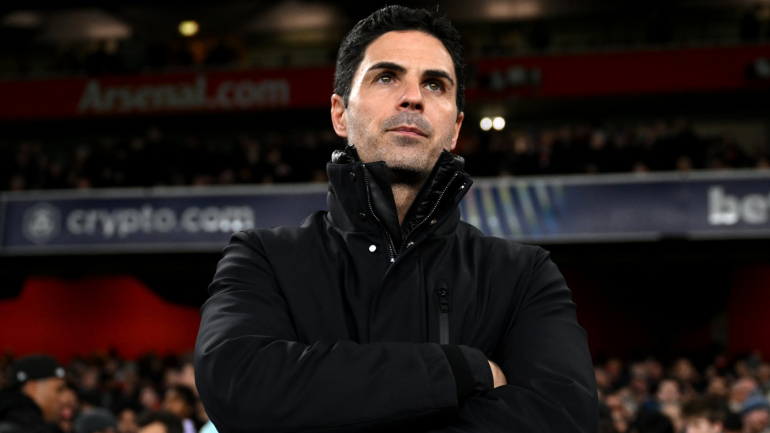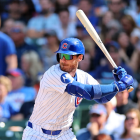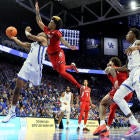
What does an EFL Cup really mean to Mikel Arteta? The Arsenal manager is the latest to find himself in the bind that many an elite coach has faced over the past 20 years. This competition tends to draw them to extreme poles when it comes to construction of the starting XI.
At one end is the approach defined by Jose Mourinho and latterly Pep Guardiola. The first piece of silverware of the season gets players hungry for the biggest prizes in the later months, it is a marker that their team are winners, that they will scrap for every trophy available. At the other extreme is how Mauricio Pochettino approached the EFL Cup when in charge of Tottenham, somewhere between indifference and disdain. His tenure would not be defined by the lesser prizes but by getting Spurs in the mix for the Premier League and Champions League.
For now, it is hard to be sure how Arteta has been viewing the EFL Cup, this season at least. He rolled out what fringe players and kids he could to take on Bolton and Preston -- supplemented out of necessity by the likes of William Saliba -- but of course he did. Even the most relentless of trophy pursuers know that lower league opposition means it is time to blood their Ethan Nwaneris and see if their Gabriel Jesuses can get some goals in the bank.
There is a reasonably compelling case for keeping this approach going when Crystal Palace turn up at the Emirates on Wednesday. Oliver Glasner's side, having recently recovered something resembling their form of late last season, would be a tougher test, but Arsenal have to think about their subsequent rematch in the Premier League and the hectic fixture list ahead of them. This would be an inopportune moment for yet another big injury in a season blighted by them.
On the other hand, it is easy to see why he is so keen for his team to "touch" some trophies. After all, he might have led Arsenal to the 2020 FA Cup, but precious few of that team are still around to regale the dressing room with inspiration. Indeed the only man to have taken the Wembley field in the win against Chelsea (where Bukayo Saka was an unused substitute) was Kieran Tierney, the fullback who is so low on the depth chart that he cannot get minutes even when Arteta spends a press conference hinting he will be getting exactly that.
Arteta himself does not want for EFL Cup medals. As Guardiola's assistant he won two with Manchester City. Both times more trophies would follow, a Premier League title in 2018 and the remainder of a domestic treble 12 months later. "It keeps everyone on their toes," he said. "Everybody is willing to play those games, those competitions and if you're able to win it, then it gives momentum, belief and we are ready and the team is always engaged, every three days to try to achieve the bigger ones."
The EFL Cup in itself would of course carry great value for Arsenal. After all a fan who had seen the rise, rise and rise of Arsene Wenger, the decade of tumult that followed, the on and off-field tumult of Unai Emery's interregnum and the soon to be half-decade of Arteta's tenure would not have seen this trophy lifted once. That matters. What matters more is what this competition might mean for the ones that really count.
Park the Premier League for a moment. It still feels slightly premature to discount a team with that defensive record -- just 8.65 xG allowed in 13 games where they weren't given a red card -- from an almighty run of results even if it would require both Gabriel Martinelli and Kai Havertz sparking back into life and Liverpool opening up a route for the chasing pack. Even if the biggest domestic prize ultimately slipped out of reach in these last few months there is the Champions League to consider.
There is no reason at all why Arsenal cannot win that. They have the defense, and yes, they could do with the "magic" whose absence Mikel Arteta has noted more than once in 2024, but only Real Madrid tend to trade more in the latter than the former and go deep in Europe. Arteta has everything he needs to win the Champions League except a convincingly negotiated two-legged knockout tie. That and a squad that knows how it feels to lift trophies and cannot wait to do it again.
As Arteta puts it, the EFL Cup "brings belief, trust, positive energy. Touching a cup, beating someone in the semifinal, beating someone in the final, it generates that energy and I think it creates that right path to go and do something else, especially because of the timing and when the competition is played in this country, it gets the momentum going."
Achieving that the hard way -- there is a good chance that Arsenal would have to go through two of Newcastle, Liverpool, Manchester United and Tottenham after Palace -- would add certainty to the energy. It may not be the grade A silverware that changes how an era is judged. Indeed if when Arteta's reign does end there is only an EFL Cup to show that would be scant consolation for the resurrection he has achieved in north London. The Gunners boss, however, knows as well as anyone what an early season trophy can do in the months that follow.
















